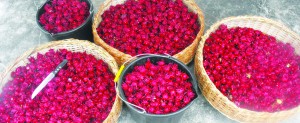By Danielle CampbBell
As scientists continue to discover more medicinal uses for sorrel, child psychologist Dr Faith Harding is confident that a pilot project to cultivate tonnes of the plant in Guyana will become a whirlwind phenomenon that can take the country’s foreign exchange earnings by storm.




